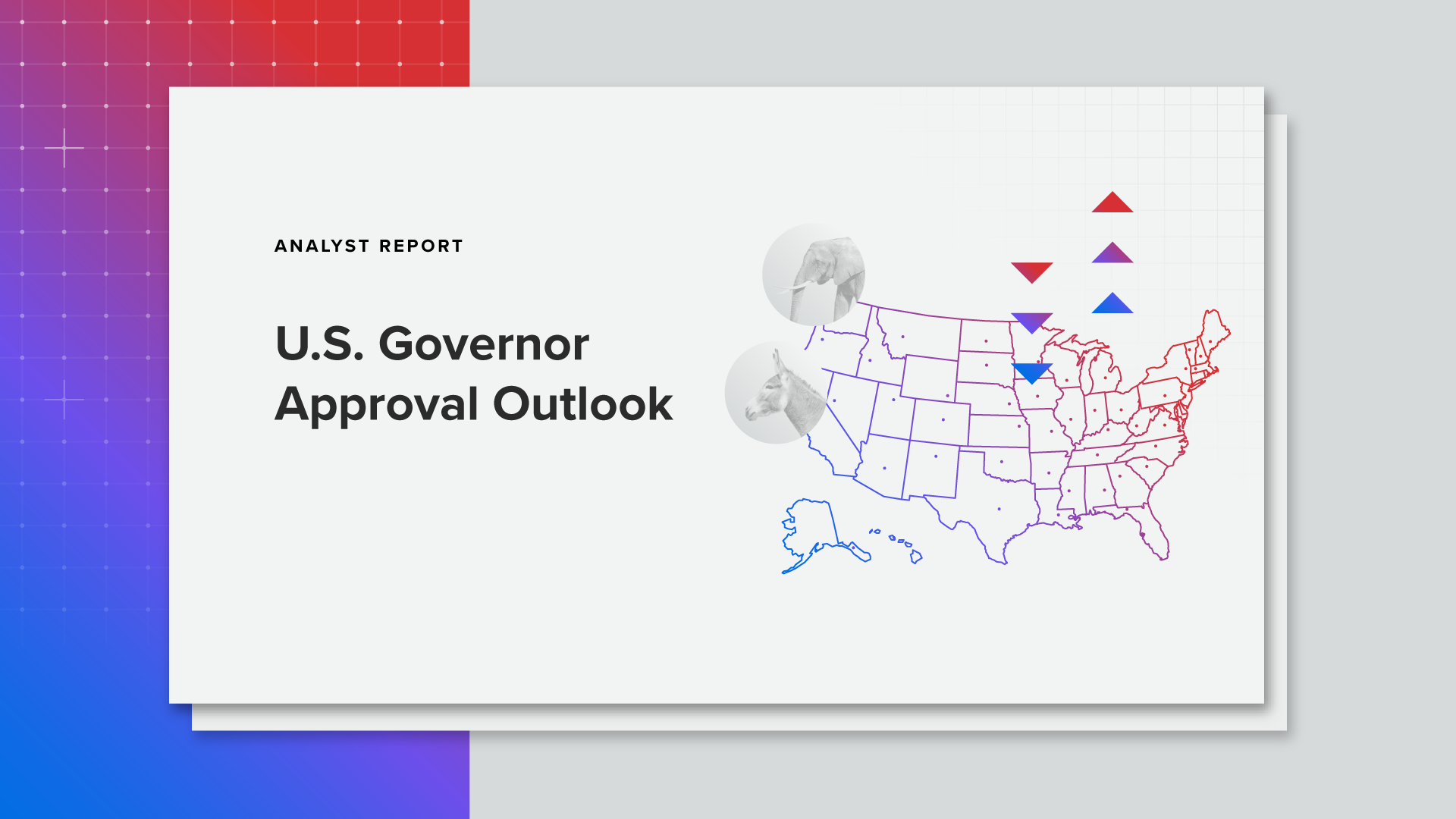Despite concerns about war, many voters would ban pro-Palestinian campus protests

Key Takeaways
Amid a wave of campus protests, more voters than not — 47% to 30% — believe colleges and universities should ban pro-Palestinian demonstrations on campus, higher than the 41% who said the same of pro-Israeli demonstrations.
Less than 2 in 5 voters support universities divesting from Israeli companies or businesses that profit from the war. Support for divestment is highest among those with postgraduate degrees and those from the wealthiest households, the kinds of people often targeted by college donation requests.
Our latest monthly tracking survey of U.S. voter sentiment about the Israel-Hamas war, meanwhile, shows continued sympathy for both Israeli and Palestinian civilians, as well as high support for humanitarian relief for the war torn people and a cease-fire.
Data Downloads
Pro+ subscribers are able to download the datasets that underpin Morning Consult Pro's reports and analysis. Contact us to get access.
Sign up to get the latest data and analysis on how business, politics and economics intersect around the world.
Many U.S. voters appear uncomfortable with the rise of pro-Palestinian demonstrations on America’s college campuses, according to a new Morning Consult survey conducted amid protests at major educational institutions in recent days.
At the same time, our latest monthly tracking of public sentiment about the Israel-Hamas war shows continued sympathy among voters for both Israeli and Palestinian civilians: The bulk of voters continue to show high support for humanitarian relief for the war torn people and for a cease-fire.
How Americans think colleges should handle Israel protests
According to our April 27-28 survey, more voters than not — 47% to 30% — believe colleges and universities should ban pro-Palestinian demonstrations on campus, higher than the 41% who said the same of pro-Israeli demonstrations as America’s television screens were inundated with scenes of protests from across the country, most prominently on display at Columbia University in New York.
More voters than not oppose colleges speaking out against Israel amid Gaza war

Survey conducted April 27-28, 2024, among a representative sample of 1,986 registered voters, with an unweighted margin of error of +/-2 percentage points. Figures may not add up to 100% due to rounding.
Roughly 3 in 4 voters (76%) say colleges should ask police to protect campuses from violence, with little partisan variation. This sentiment is shared by the bulk of voters ages 18-34 (67%), but most prominently among voters 65 and older (87%), reflecting an age gap on the matter between America’s oldest and youngest generations.
Amid protesters’ pressure on schools to take actions against Israel, less than 2 in 5 voters support universities divesting from Israeli companies or businesses that profit from the war (38%) or making statements condemning Israeli’s actions in Gaza (33%), though notable divides appear by partisan identification and age.
While many voters (roughly 3 in 10) do not have opinions on the matter of divestment, support for it is highest among those with postgraduate degrees — the kind of people who often have more earning power, and in colleges’ views, greater ability to donate. Indeed, voters from the wealthiest households are more likely than those from middle-earning homes to support divestment (45% to 34%).
Tracking voter sentiment on the Israel-Hamas conflict
Despite Americans’ views on campus demonstrations, our seventh monthly tracking survey of voters’ views about the conflict between Israel and Hamas shows the electorate continues to be more likely to express sympathy for both sides of the war equally, as we saw in March.
Sympathy for Palestinians ticks back up among Republican voters

Notably, there was an uptick in good will toward the Palestinian people among Republican voters in April: 9% said they are most sympathetic toward them, up from 4% at the start of the conflict after Hamas’ Oct. 7 attack on Israel.
Along with their sympathies for people on both sides of the conflict, another trend continues to stand out: Most voters of all parties want the war to end.
3 in 5 voters support a ceasefire in Gaza

According to the latest wave of tracking, 3 in 5 voters — including 72% of Democrats, 54% of independents and 52% of Republicans — said they support calls for a cease-fire in the Israel-Hamas war, matching overall levels of support captured last month among U.S. voters. Two in 5 voters strongly support such calls, marking a high since November 2023, including the bulk of Democratic voters (54%).
Our latest survey also comes after Congress approved a supplemental foreign spending package that includes funding for Ukraine, Taiwan, Israel and humanitarian relief for the Palestinians. Voters remain more likely than not to support humanitarian relief than military aid for Israeli Prime Minister Benjamin Netanyahu’s government, though support for the latter has ticked up a bit since last month.
Less than half of U.S. voters back military aid to Israel

Roughly 3 in 5 U.S. voters (58%) said they support humanitarian aid for the Palestinians, compared with 47% who back military aid to Israel. While backing for civilian relief is roughly where it was at the start of the war, support for Israel’s armed forces has fallen among both Democratic and independent voters since then, with a modest uptick since last month.
The bottom line
The conflict in the Middle East continues to be a complicated matter for American institutions, from the federal government to colleges and universities.
For educational institutions, common ground appears to lie in keeping campuses safe and offering resources for students to process what they are seeing on the ground in Gaza. Things like banning protests could be politically divisive among Democrats, but would likely be much more popular among Republicans, showing the balance university leaders have to strike when it comes to engaging (or not) with campus demonstrators and safeguarding their public image at the state-and national levels.
For the Biden administration, our latest survey continues to highlight Americans’ lack of patience with the conflict, as articulated by both the president and his presumptive Republican challenger this fall, and ups the ante for Secretary of State Antony Blinken’s diplomatic efforts to engineer a ceasefire.
On the political front, our surveys conducted over the weekend show the matter ranks low when voters’ think about their ballots this fall: Only about 2 in 5 voters, including 35% of the youngest cohort, said the Israeli-Palestinian conflict is “very important” to their vote. But a dramatic protest movement could have the potential to weigh on the contest if it maintains steam and expands beyond college campuses — particularly with our data finding America's youngest voters souring on Biden this cycle relative to 2020.
Eli Yokley is Morning Consult’s U.S. politics analyst. Eli joined Morning Consult in 2016 from Roll Call, where he reported on House and Senate campaigns after five years of covering state-level politics in the Show Me State while studying at the University of Missouri in Columbia, including contributions to The New York Times, Politico and The Daily Beast. Follow him on Twitter @eyokley. Interested in connecting with Eli to discuss his analysis or for a media engagement or speaking opportunity? Email [email protected].

